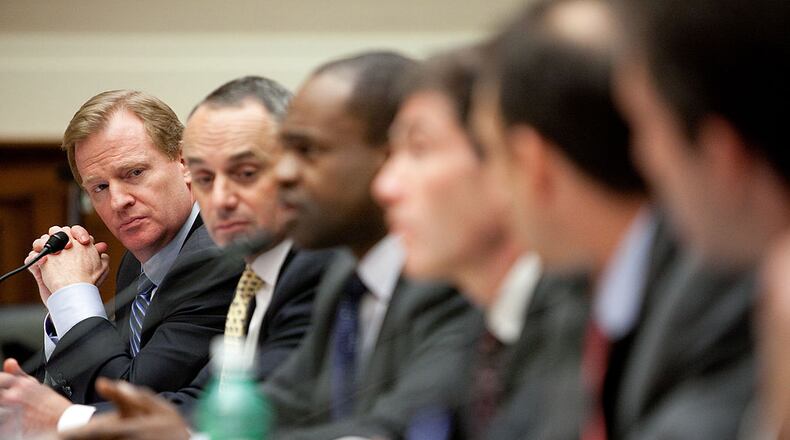Deters previously said he would weigh what the further implications might be for Jones with the league if he were to press charges.
That concern is somehow both insane and justifiable.
It is crazy because a crime seemingly is a crime regardless of a person’s employer, but it’s justifiable because the NFL has a tendency to totally botch how it handles situations of bad player behavior, be it by being too lenient or harsh depending on the specific episode.
Nonetheless, the NFL has declared it can press forward with punishment for players regardless of their actually being charged with a crime, which is further confirmation of how arrogant and stupid some league officials must be.
Certainly our legal system is far from perfect, but in what universe does anyone think the NFL can do a better job of deciding if and when a crime has occurred and what to do about it?
They can barely write their own rules, let alone enforce those of others.
To be clear, I have little sympathy for Jones, who certainly seems to be pretty good at finding trouble, and I still believe the Bengals organization would be better off not taking the PR hit by standing by him given his treatment of police officers in a video that went viral.
(Also worth noting: Deters seems to believe Jones’ entering counseling is having a positive effect.)
Nevertheless, the league’s approach to these situations may do more harm than good.
The ongoing investigation of Ezekiel Elliott for an alleged domestic abuse incident more than six months after the Columbus city attorney declined to press charges is another example.
In trying to prove it is serious about player behavior, the league mostly reinforces the false impression the league is full of people who misbehave chronically.
(Even the oft-troubled Jones took part in a bike giveaway to Cincinnati-area kids in December.)
And since commissioner Roger Goodell and Co. have proven to be fairly poor at determining what types of punishment should be appropriate and when, I tend to think they probably should leave it to the professionals.
About the Author

